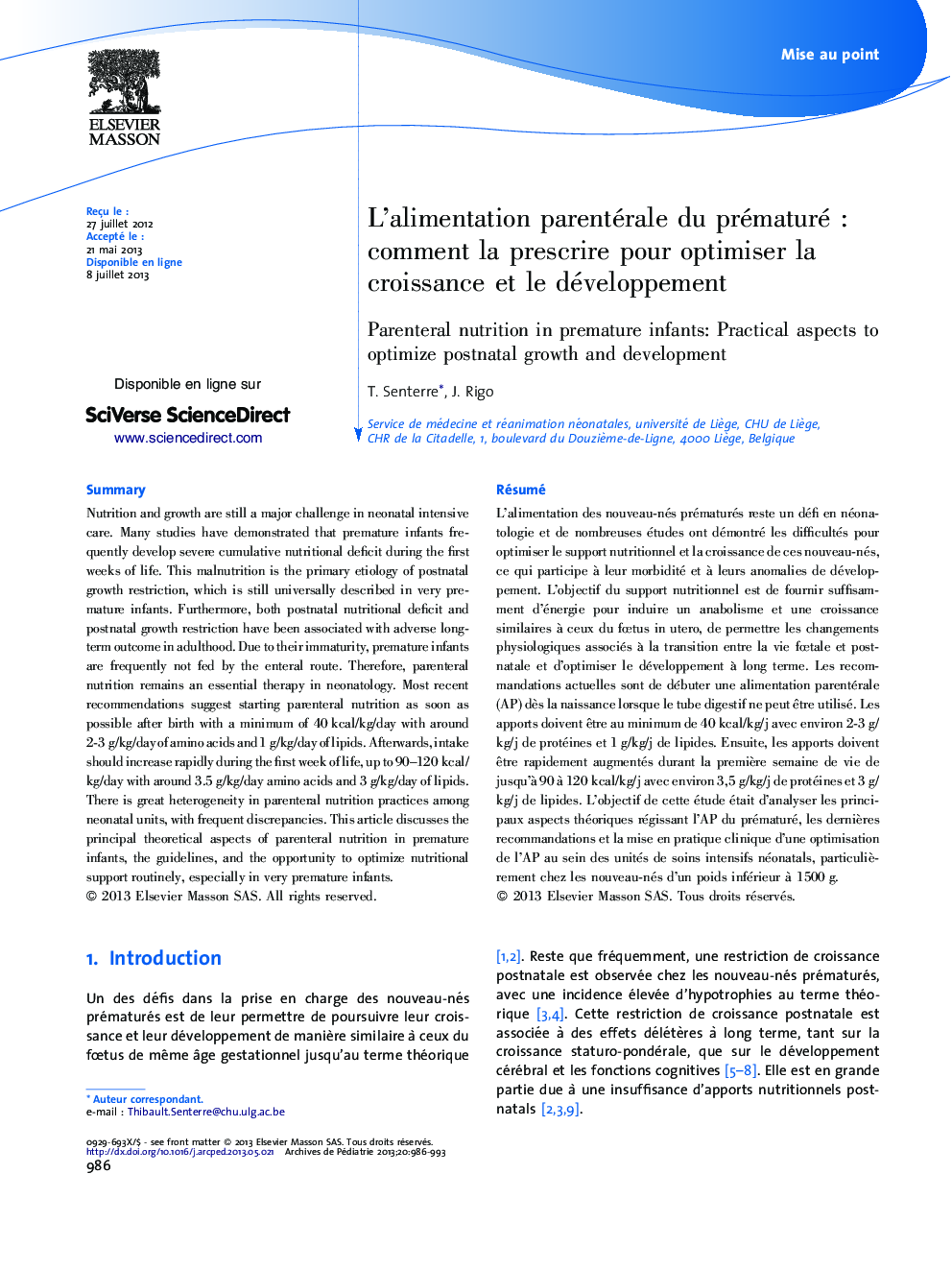| Article ID | Journal | Published Year | Pages | File Type |
|---|---|---|---|---|
| 4146728 | Archives de Pédiatrie | 2013 | 8 Pages |
Abstract
Nutrition and growth are still a major challenge in neonatal intensive care. Many studies have demonstrated that premature infants frequently develop severe cumulative nutritional deficit during the first weeks of life. This malnutrition is the primary etiology of postnatal growth restriction, which is still universally described in very premature infants. Furthermore, both postnatal nutritional deficit and postnatal growth restriction have been associated with adverse long-term outcome in adulthood. Due to their immaturity, premature infants are frequently not fed by the enteral route. Therefore, parenteral nutrition remains an essential therapy in neonatology. Most recent recommendations suggest starting parenteral nutrition as soon as possible after birth with a minimum of 40Â kcal/kg/day with around 2-3Â g/kg/day of amino acids and 1Â g/kg/day of lipids. Afterwards, intake should increase rapidly during the first week of life, up to 90-120Â kcal/kg/day with around 3.5Â g/kg/day amino acids and 3Â g/kg/day of lipids. There is great heterogeneity in parenteral nutrition practices among neonatal units, with frequent discrepancies. This article discusses the principal theoretical aspects of parenteral nutrition in premature infants, the guidelines, and the opportunity to optimize nutritional support routinely, especially in very premature infants.
Related Topics
Health Sciences
Medicine and Dentistry
Perinatology, Pediatrics and Child Health
Authors
T. Senterre, J. Rigo,
